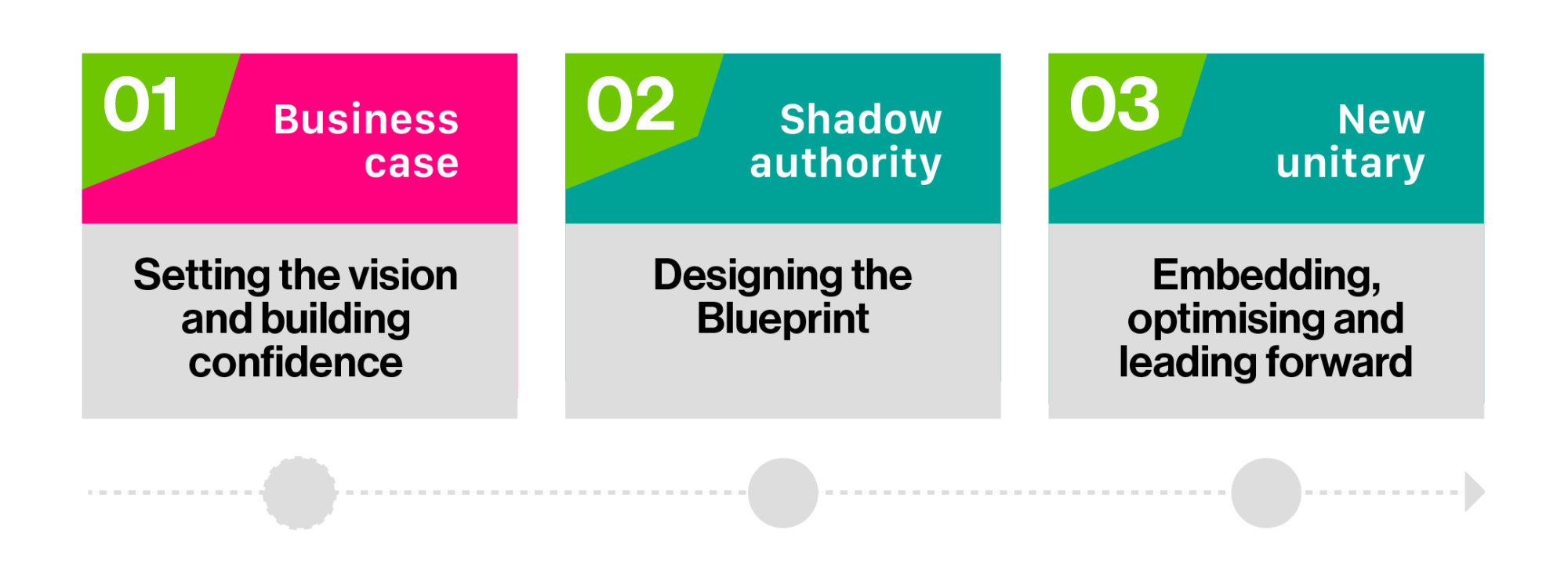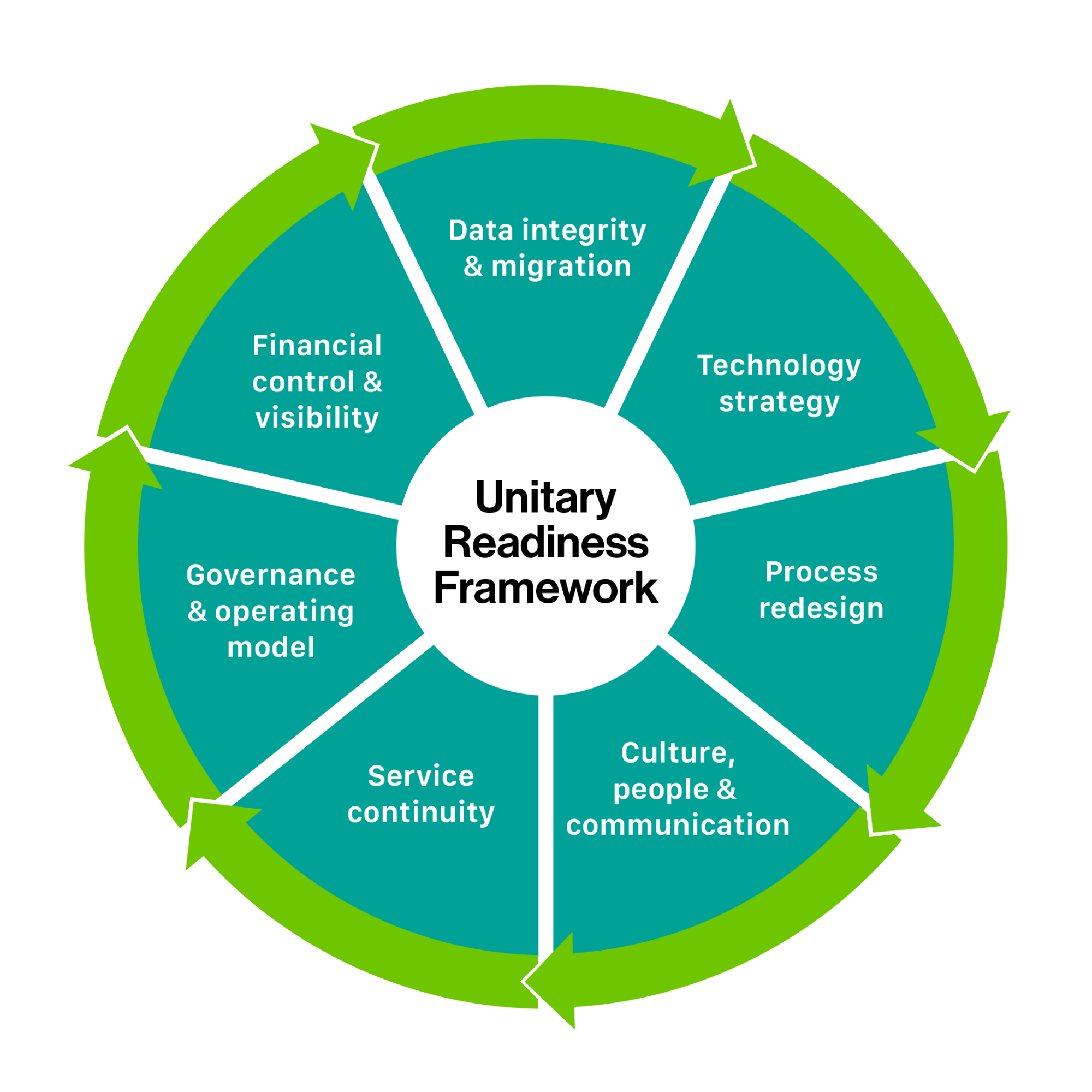Emma O’Brien, CEO of Embridge Consulting, discusses reform or replication regarding how devolving councils can avoid repeating past failures
The Power and Partnership whitepaper, published in December 2024, represents the most substantial reform England’s local authorities have seen since the 1974 Local Government Act.
It aims to replace former borough and county councils with a series of more efficient unitary authorities, driving community engagement whilst improving service delivery and generating savings.
The question is: how can the 21 new authorities – still awaiting the Secretary of State’s review of interim proposals – achieve this without inadvertently replicating past inefficiencies?
Whilst the promise of more resilient futures remains strong, councils face a myriad of barriers to success, from incomplete data that prevents a complete understanding of the community to outdated technology systems that inhibit effective collaboration. Not to mention the human difficulties often encountered when attempting to bring former teams together as one.
Left unchecked, such obstacles can soon spiral into systemic failures, as illustrated by Westminster, Kensington & Chelsea, and Hammersmith & Fulham. In 2011, these three London authorities created the tri-borough shared services. However, disputes over governance, uneven benefits, and contract issues eventually saw the partnership dissolve in 2017, proving how critical it is to get the operating model, accountability, and stakeholder alignment right from the outset.

Practical and technological hurdles
Councils hoping to leave inefficiencies behind must simultaneously grapple with data, systems, and finances. Incomplete or outdated records can hinder service delivery, while underperforming software – from HR and finance to ERP systems – may struggle to connect and communicate without hindrance across new authorities. Misalignments or unresolved gaps can likewise create new operational bottlenecks, disrupting vital services and eroding public trust.
The pressure to select new platforms adds further complexity. Each option brings different capabilities, potential for integration, and long-term value. Without early, impartial guidance, councils risk locking into unsuitable contracts or being swayed by perceived short-term savings that prove costly later on.
Clear financial oversight must run alongside practical considerations for this reason. Missed opportunities and inadequate governance will only entrench current problems, leaving new unitary authorities vulnerable to scrutiny, squandered investments, and broader mission failure.
The human dimension
Ultimately, it’s the people side of change that decides the fate of reform. Bringing teams together from different councils inevitably triggers uncertainty and fear, with practical changes potentially creating new skills gaps on top. If resistance to change – for any of these reasons – remains unaddressed, new councils risk reverting to the familiar yet inefficient routines of their predecessors, wasting time and losing public trust.
Too often overlooked, people-first change strategies are not optional – but essential. Engaging staff members early on, helping them understand and prepare for new ways of working, and ensuring they feel empowered to operate using new tools and processes, safeguards the continuity of public service.
Harmonising workflows without considering employee experience or culture only breeds confusion and disengagement. Effecting training and real-world support, on the other hand, builds both capability and confidence, allowing councils to operate with continued agility as they maintain uninterrupted, citizen-facing services throughout any kind of transition.
Early action and essential guidance
The scale of devolution leaves little room for a wait-and-see approach. Early recognition of both practical and human challenges allows risks to be identified and mitigated before issues even appear.
Currently at the business case stage (Phase 1), decision-makers stand at a critical juncture. Choosing the proper change management support could be the difference between crashing and burning or soaring spectacularly.
The key is to work with experienced partners, such as Embridge Consulting, which has long supported successful public-sector transformation through its unique combination of technical expertise and human focus.
Technology is recommended based on real-world council requirements, rather than unjustifiable novelty or loyalty to specific vendors, safeguarding spend while proprietary solutions, such as the LEO managed integration service, guarantee zero service interruptions, even during unprecedented change.
More importantly, comprehensive Business Transformation as a Service plans factor in staff culture, training and satisfaction, guaranteeing resilience and adaptation, plus sustained commitment to deeper-rooted change from day one.

Sustained support
Whilst preparing for vesting day is undoubtedly important, ensuring new leaders can effectively achieve objectives and do their jobs means that sustained improvement does not fall off the agenda as soon as new authorities have taken formal shape. Continued system integration, cultural engagement, and operational oversight are all needed to truly keep regression at bay, safeguarding hard-earned progress and putting forward-thinking councils into a protected position when it comes to driving meaningful, long-lasting change.
By learning from the past, acting swiftly, and putting people at the heart of reform, councils can ensure this next chapter in local government becomes one of permanent, enduring success.
As illustrated in Embridge’s Unitary Readiness Framework*, lasting reform relies on getting the essentials right – from governance and financial control, to technology, culture, and service continuity. With proper guidance and commitment, devolution need not replicate former failures, but instead redefine what strong, community- focused authorities are capable of achieving in the long term.

This work is licensed under Creative Commons Attribution-NonCommercial-NoDerivatives 4.0 International.











